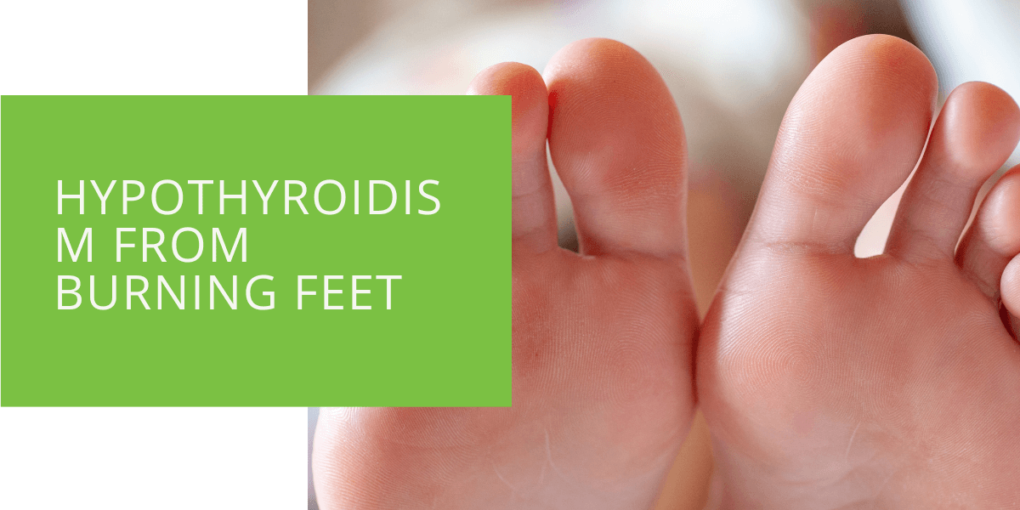Hypothyroidism from Burning Feet
Burning feet can be a distressing symptom that individuals with hypothyroidism may experience. This article will delve into the intricate relationship between hypothyroidism and burning feet, exploring the possible causes, symptoms, and effective management strategies. By understanding this connection, individuals with hypothyroidism can seek timely intervention and relief from this uncomfortable sensation in their feet.
What is Hypothyroidism?
Hypothyroidism is a condition characterized by an underactive thyroid gland, which fails to produce enough thyroid hormones. The thyroid gland in the front of the neck is crucial in regulating various bodily functions, including metabolism, temperature regulation, and nerve function. When thyroid hormone levels are low, the body's overall function is impacted, leading to fatigue, weight gain, and sensitivity to cold.
Burning Feet: Causes and Symptoms
Burning feet, also known as peripheral neuropathy, can result from various causes, including nerve damage and circulatory issues. Peripheral neuropathy is a condition characterized by peripheral nerve damage, which transmits signals between the central nervous system and the rest of the body. When these nerves are affected, individuals may experience tingling, numbness, and a burning sensation in their feet.

The Link between Hypothyroidism and Burning Feet
Impact of Hypothyroidism on Nerve Function
Hypothyroidism, characterized by low thyroid hormone levels, can significantly impact nerve function throughout the body, including the peripheral nerves in the feet. The thyroid hormones play a crucial role in maintaining the normal functioning of the nervous system. When these hormones are deficient, the nerves may become more susceptible to damage and dysfunction.
Nerve Damage and Peripheral Neuropathy
Peripheral neuropathy refers to damage or dysfunction of the peripheral nerves, which transmit signals between the central nervous system and the rest of the body. In the case of hypothyroidism, the reduced levels of thyroid hormones can contribute to peripheral neuropathy, leading to symptoms such as burning feet.
Impaired Blood Flow to the Extremities
Thyroid hormones also play a role in regulating blood flow to the extremities, including the feet. Reduced thyroid hormone levels can result in decreased blood flow, which may further contribute to the development of burning feet. Insufficient blood supply deprives the nerves of oxygen and nutrients, leading to nerve damage and the sensation of burning, tingling, or numbness.
Inflammation and Autoimmune Factors
Hypothyroidism can sometimes be caused by autoimmune thyroid diseases such as Hashimoto's thyroiditis. Autoimmune diseases involve the body's immune system mistakenly attacking its tissues, including the thyroid gland. This immune response can lead to inflammation, which may also affect the peripheral nerves and contribute to the development of burning feet.
Other Contributing Factors
While the exact mechanisms linking hypothyroidism and burning feet are not fully understood, other factors may also play a role. For example, hypothyroidism may have associated conditions such as diabetes or vitamin deficiencies that can independently contribute to peripheral neuropathy and burning feet. Additionally, the dry skin often associated with hypothyroidism can increase the risk of skin irritation and discomfort in the feet.
Importance of Early Detection and Treatment
Early detection and treatment of hypothyroidism are crucial for managing the associated symptoms, including burning feet. It is essential for individuals experiencing persistent or worsening burning feet to seek medical attention and discuss their symptoms with a healthcare professional. Prompt diagnosis and appropriate treatment can help address the underlying thyroid condition and potentially alleviate burning feet symptoms.
By understanding the link between hypothyroidism and burning feet, individuals can advocate for their health and work closely with healthcare professionals to develop a comprehensive management plan. This may involve hormone replacement therapy to restore thyroid hormone levels, addressing associated conditions, and implementing self-care strategies to support nerve health and improve blood flow to the feet.
Remember, everyone's situation is unique, and it is important to consult with a healthcare professional who can provide personalized guidance based on your specific needs and medical history.

Diagnosing Hypothyroidism and Burning Feet
Healthcare professionals perform blood tests to measure thyroid hormone levels to diagnose hypothyroidism. Additionally, when individuals report symptoms of burning feet, consulting with a podiatrist or an endocrinologist is crucial. They can thoroughly examine and evaluate the relationship between hypothyroidism and peripheral neuropathy. An accurate diagnosis can be made by obtaining a comprehensive medical history, conducting neurological tests, and ruling out other potential causes.
Treatment and Management
Effective management of hypothyroidism is vital to alleviate burning feet symptoms. Hormone replacement therapy, involving the administration of synthetic thyroid hormones, is a common treatment approach. Restoring thyroid hormone levels to normal, it can help improve nerve function and circulation, potentially relieving the burning sensation in the feet.
In addition to medical interventions, there are several self-care strategies that individuals can adopt to manage burning feet associated with hypothyroidism. These include:
- Foot exercises: Regular stretching and strengthening exercises can help improve blood flow and alleviate foot discomfort.
- Proper footwear: Wearing supportive shoes with cushioning and adequate arch support can relieve and reduce pressure on the feet.
- Good foot hygiene: Maintaining proper foot hygiene, including regular washing, moisturizing, and keeping feet dry, can prevent complications and soothe dry skin.
It is important to note that untreated hypothyroidism can worsen symptoms, including burning feet. Therefore, individuals should follow their healthcare provider's guidance and treatment plan to manage their thyroid condition and associated peripheral neuropathy effectively.
Conclusion
Burning feet can be a distressing symptom experienced by individuals with hypothyroidism. By understanding the connection between hypothyroidism and burning feet, individuals can seek appropriate medical attention, ensuring timely intervention and effective management. Through hormone replacement therapy and self-care strategies, such as foot exercises and proper footwear, relief from the burning sensation can be achieved. Remember, seeking professional guidance and following a comprehensive treatment plan are essential for managing hypothyroidism and burning feet.

